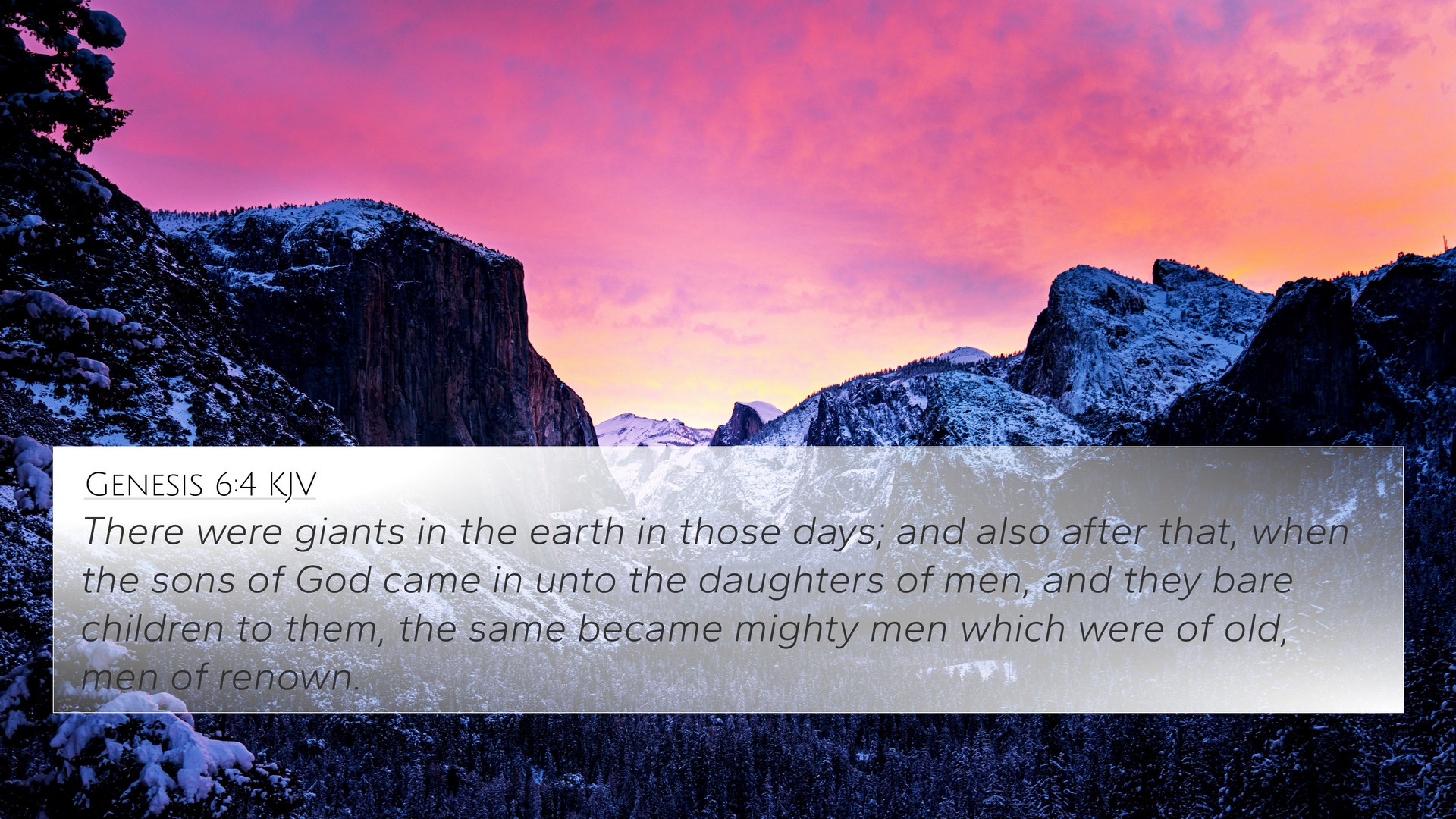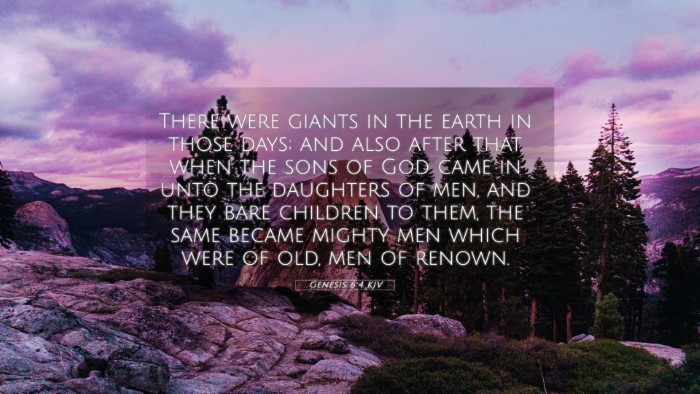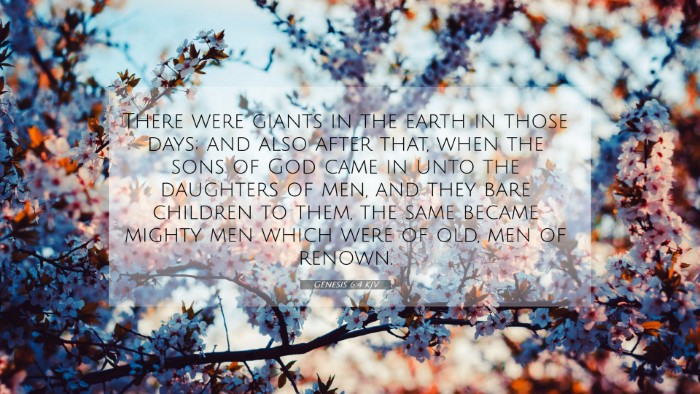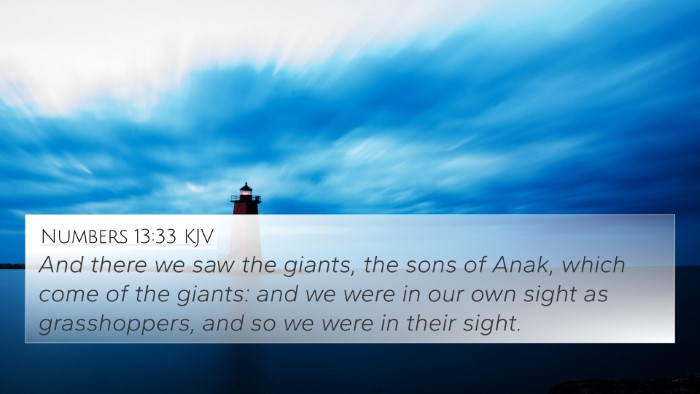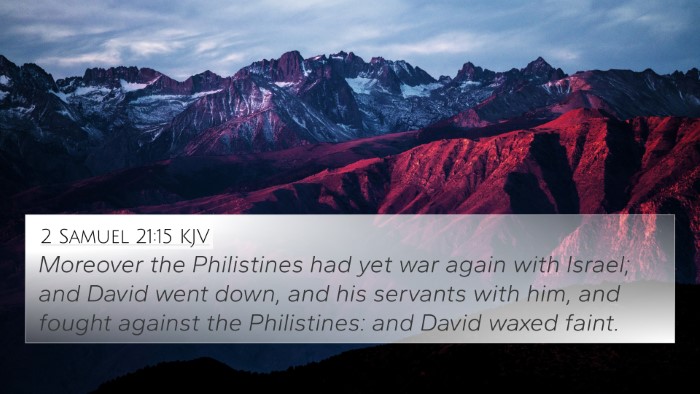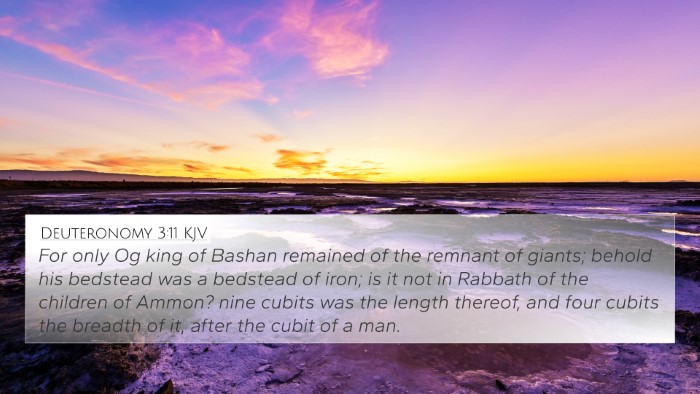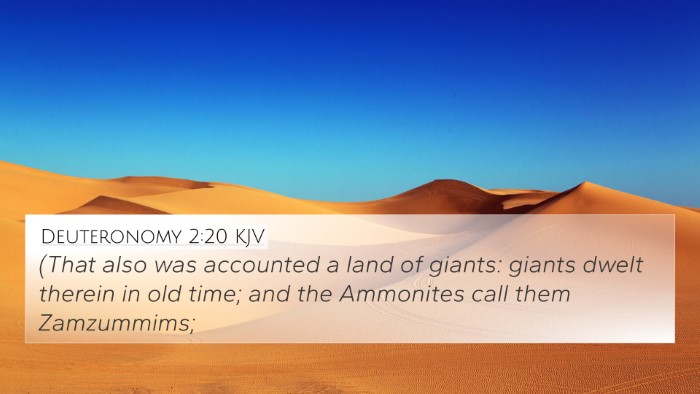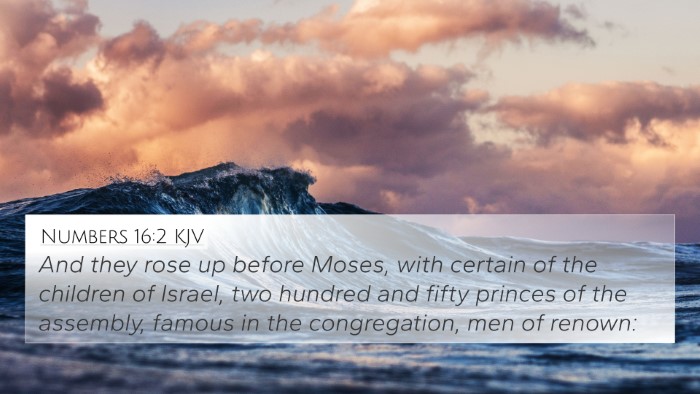Understanding Genesis 6:4
Genesis 6:4 states:
"There were giants in the earth in those days; and also after that, when the sons of God came in unto the daughters of men, and they bare children to them, the same became mighty men which were of old, men of renown."
Overview and Context
This verse appears in a pivotal section of Genesis, where the narrative begins to describe humanity’s decline before the Flood. The reference to "giants" and "sons of God" introduces complex themes of divine beings interacting with humanity.
Commentary Insights
-
Matthew Henry:
Matthew Henry highlights the supernatural aspect of this verse, suggesting that the term "giants" refers to mighty beings or heroes. He emphasizes that the "sons of God" could represent fallen angels or the line of Seth, thus discussing the implications of divine-human interaction and moral corruption that leads to divine judgment.
-
Albert Barnes:
Barnes interprets "sons of God" as the righteous descendants of Seth, while the "daughters of men" symbolize the wicked lineage of Cain. This connection signifies the mingling of the faithful with the unfaithful, which leads to moral decay and eventually the need for divine intervention through the Flood.
-
Adam Clarke:
Clarke explores the idea that these "giants" represented both physically large individuals and those of great renown in society. He suggests that this verse demonstrates the pride and corruption of man, prompting God's judgment. Clarke’s insights emphasize the significant moral decline during this period, leading to the catastrophic Flood.
Thematic Connections
The themes in Genesis 6:4 reach beyond the immediate context and are echoed throughout Scripture, establishing numerous connections between Bible verses:
- Job 1:6-7: Discusses the "sons of God" in the heavenly court, implying a connection between divine beings and humanity.
- Numbers 13:33: Refers to the Nephilim, or giants, suggesting a historical continuity of mighty figures and their implications in God’s plan.
- Matthew 24:37: Jesus references the days of Noah, alluding to the behavior of people before the flood, connecting the moral state of humanity across the Testaments.
- 2 Peter 2:4: Speaks of angels who sinned, relating back to the possible angels in Genesis, tying judgment and sin across different Biblical writings.
- Genesis 4:19-22: Chronicles the lineage of Cain, providing context on the societal conditions leading to the events in Genesis 6.
- 1 Peter 3:20: Mentions Noah's time and the spirits in prison, suggesting the consequences of the actions described in Genesis 6:4.
- Hebrews 11:7: Refers to Noah’s faith in the context of divine judgment, acknowledging the relevance of the preceding narrative.
Cross-Referencing Biblical Texts
This verse serves as a key for cross-referencing themes of divine-human interaction, judgment, and the resulting societal ramifications. Understanding these connections can enhance Bible study and interpretation.
Related Themes and Insights
The implications of Genesis 6:4 extend to various themes:
- Moral corruption leading to divine judgment.
- The consequences of intermingling the righteous with the unrighteous.
- Supernatural beings' influence on humanity.
- The faithfulness of God in preserving a remnant (Noah and his family).
Tools for Bible Cross-Referencing
Utilizing tools such as a Bible concordance, Bible cross-reference guide, and comprehensive Bible cross-reference materials helps deepen the understanding of connections between verses like Genesis 6:4 and others, ensuring a holistic view of the Scriptural narrative.
Conclusion
In sum, Genesis 6:4 is not merely a historical account but a profound narrative that speaks of humanity's struggle against moral corruption and the resulting consequences. By cross-referencing this verse with others, readers can grasp the overarching themes of sin, judgment, and God’s redemptive plan laid out in the Scriptures.
